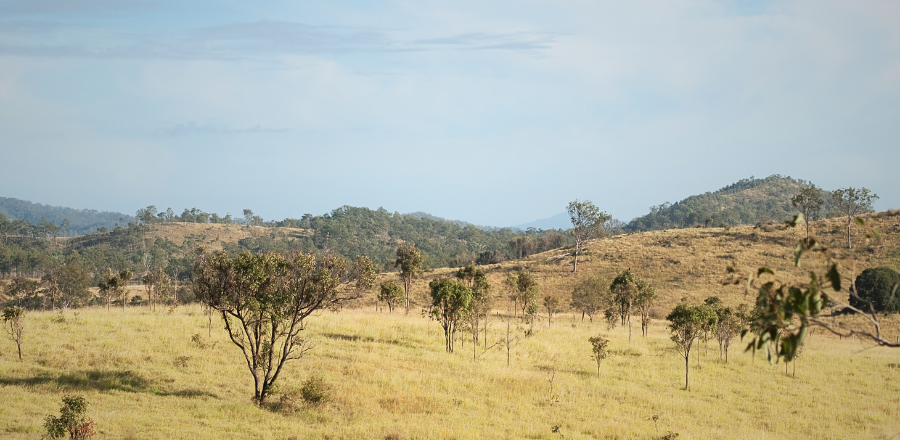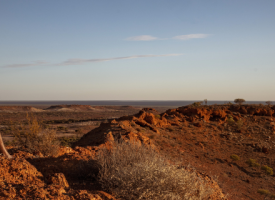Transcript: Dr Danielle McMullen interview on Rural Health Issues Survey 2025
AMA President Dr Danielle McMullen interviewed on ABC News Radio on the release of the AMA’s 2025 Rural Health Issues Survey Report.

HOST: Thomas Oriti
Now, we're going to stay with the election because the Australian Medical Association is calling for a national independent agency to work towards getting more doctors into rural and regional areas. The body conducted a survey on rural health issues, which heard the main concern for 90 per cent of respondents was the need for extra funding and resources to provide adequate staffing levels. Both major parties have made promises to improve access to healthcare in the regions, but will it make a difference?
Doctor Danielle McMullen is a president of the AMA and she says that the Association survey revealed a lot about regional doctors' priorities.
DANIELLE MCMULLEN: So, we surveyed over 500 rural and regional doctors and the results were clear that top three priorities are our rural hospitals, general practice and workforce, and obviously those three are all really interlinked. Our doctors love working in the bush, but they can't do it by themselves. They need infrastructure to be able to work in, and they need healthcare teams, and we need a long-term strategic plan for our rural health workforce to make sure that we're encouraging doctors and other health workers out into the bush to give Australians the care they need.
QUESTION: Okay. Now, this independent national health workforce planning agency, that's what you're calling for. Tell us about that, how would that work?
DANIELLE MCMULLEN: Yes. Australia used to have one of those and then it was dropped in 2014, and we've now had a decade of just a data and strategy vacuum. And it's really hard to plan health workforces. You can't just get healthcare workers overnight. You need that long-term vision and then every day an agency really putting that effort into working out how many doctors, nurses, and other health workers do we need? Where do we need them to work, and putting those strategies into place? So, we really think that needs that oversight and coordination. And obviously, for our regional workforce, they need to have a voice at that table too - we can't make decisions about them without them and so we need that coordination and rural voices in the room.
QUESTION: I just wonder, with respect, do you feel as though another oversight body would really make that much of a difference?
DANIELLE MCMULLEN: We think it did. Like, so we've had demonstrated value of it previously in Australia and we really, in health, have felt the loss of that over the past 10 years with workforce numbers really - many jurisdictions can't even tell us how many workers they have. And it's just that data vacuum is really challenging and you do need a group that's got the strategy looking forward and then really has their eye on the prize of how do we put those strategies into action so it's not just a piece of paper stuck in a cupboard.
QUESTION: Yeah, indeed. Because, I mean, these are obviously complicated issues, don't get me wrong, but how much of a problem is actually a bit more simple than that? It just stems from doctors preferring to stay in the cities to practice rather than move regional.
DANIELLE MCMULLEN: Look, we know from those who- so we've got recent data that, actually, the uptick in interest in general practice over the past couple of years has been in rural areas. So, we've actually seen more interest in rural general practice than we have in metro, so that shows doctors do want to work in the bush, but we've got to be able to support them to do that. They can't go out there- we've got issues as basic as accommodation and childcare come up frequently in our surveys. It's really hard to go work in a regional town if you don't have a roof over your head, a school for your kids and a job for your spouse, and those sorts of issues are really important to cover as well.
QUESTION: Now, obviously we're in election mode so there are some policies on the table to tackle this. I'll start with the Coalition, right. So, they've announced $100 million for improving rural healthcare, things like upgrading regional medical training facilities, additional regional medical Commonwealth supported places as well. How do you feel about that? Would that make a real difference?
DANIELLE MCMULLEN: Yes, we really think that's a great step in the right direction. Part of that announcement was also a rural health strategy, which is excellent, and that infrastructure spend to uplift their training facilities. So, that was a really fantastic announcement from the Coalition. And then we've had some other announcements from both sides about regional and increasing GP training positions and training rotations in rural and regional areas, which are also really encouraging to see. So, it's really good to see rural health on the political agenda this election.
QUESTION: Okay. Now Labor, they've promised to boost all bulk billing - that's a big one, right? So boosting bulk-billing incentives. They've said many more Australians, including in regional areas, will be able to access those free GP visits. Do you think that will make a real difference when it comes to regional health?
DANIELLE MCMULLEN: So, that one's locked into the budget and will be coming in November with the Coalition agreeing to it as well. And while it's a significant investment in general practice, and it is weighted rurally, we do have concerns that it doesn't address the underlying problems with Medicare in general practice. We really need to modernise the structure of Medicare so that Australians can get a better rebate for those longer, more complex consultations. This may give us some short term- ease the pain in the short term with some extra incentives, but we really need those longer-term reforms as well.
QUESTION: Okay. Well I mean, what are some of the proven measures, though, that can be put in place, in your view, to increase the number of doctors in rural and regional areas? What should be prioritised and done now?
DANIELLE MCMULLEN: So, we need to make sure that there are obviously financial incentives that do help to attract and retain workforce, but it is those other things like making sure they've got housing, childcare, spousal employment and those sort of social supports around them. And building a healthcare team, if we've got towns with a culture of having a few doctors and nurses and allied health staff, decent investment in their infrastructure, they're the recipe ingredients to building your rural health workforce and having a thriving rural health for Australians.
ENDS


